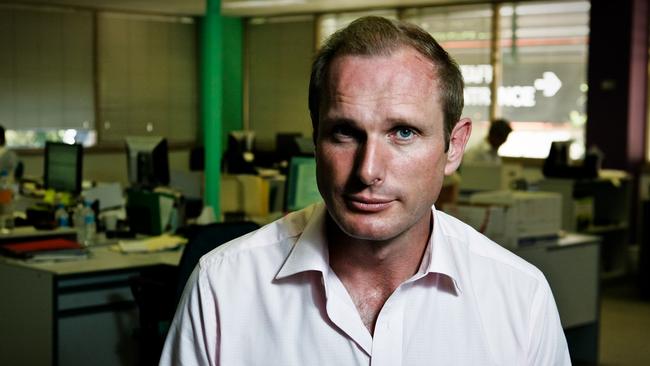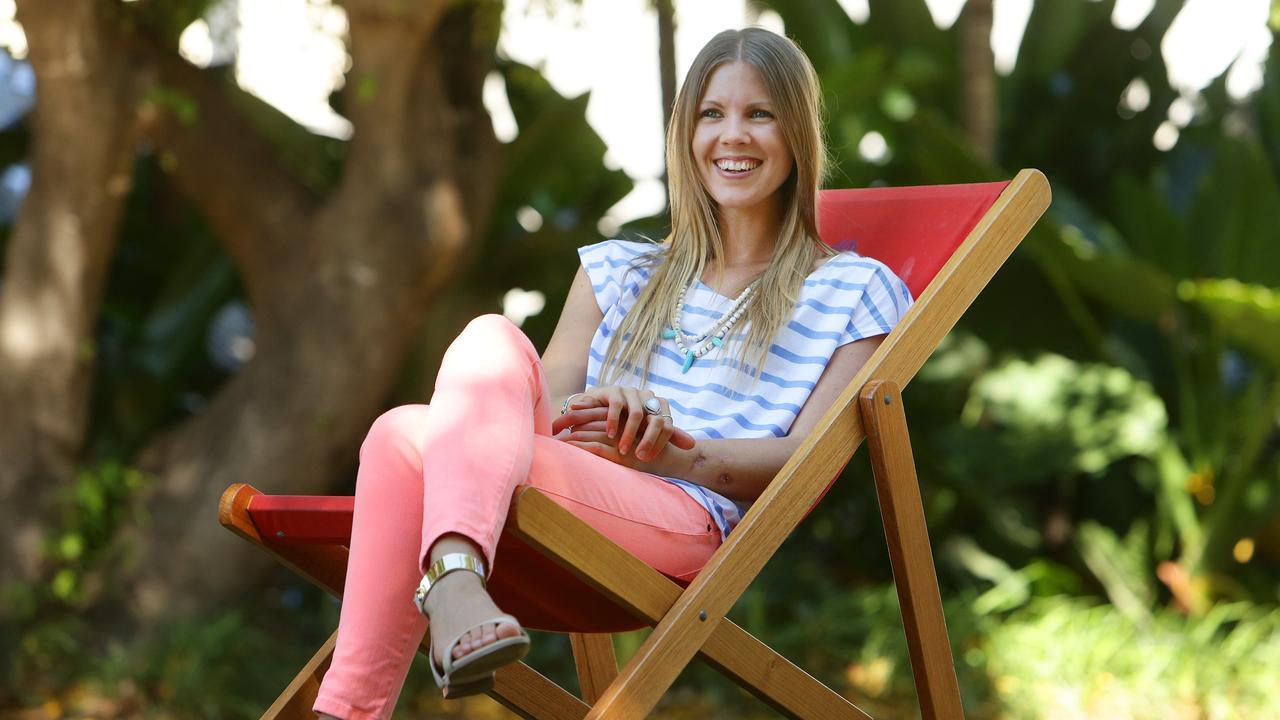Behind the Sunday Night massacre
The axing of Sunday Night is being seen as emblematic of wider problems at Seven West Media.

It was conceived as a feisty challenger in public affairs journalism to the heavyweight 60 Minutes when Channel 7 was on the rise. And now the axing of Sunday Night is being seen as emblematic of wider problems at Seven West Media.
New Seven West Media chief executive James Warburton confirmed the show’s demise last week as he announced a company-wide management restructure, halving his direct reports to just eight executives.
It was sad but not a complete surprise to the 38 staff employed to produce the hour-long weekly current affairs program. Earlier this year they were warned that the future of the show depended on a substantial lift in ratings against Nine’s 60 Minutes.
In the aftermath, observers and staff members blamed a series of factors: the program had gone too tabloid, its schedule was moved too often to build a loyal audience and it was being sacrificed to give new management some financial firepower for desperately needed new programming in 2020.
Former investigative reporter Ross Coulthart, who spent eight years at the show, says a much bigger issue is behind the demise.
“We are witnessing the death of long-form investigative journalism on commercial television,” Coulthart says. “The media industry that has been built and nurtured over 100 years in Australia is dying because of the role of the online behemoths, and they are taking over.”
Coulthart, the five-time Walkley Award-winning reporter who crossed over from Nine to join the start-up Sunday Night at the end of 2008, made a similar observation last year in a podcast with The Australian. Back then, he was leaving journalism but his comments seem prescient now.
The axing means Seven, which built its ratings dominance on news and current affairs, could go into 2020 without a prime-time public affairs offering in its schedule. Observers fear Seven may bank the money to fix other holes in its schedule and not replace it with long-form prime-time journalism.
News boss Craig McPherson says Seven has some projects in the pipeline but they are yet to get the green light. It’s unlikely they will match the buzz of the early days of Sunday Night.
Launched under ex-Nine news veteran Peter Meakin, Sunday Night was a powerful lure for journalists with its big budgets, travel and time to research and tell stories.
“For a young guy, it was a dream job,” says Alex Cullen, a former sports presenter on Seven News plucked by Meakin in 2010.
Reporters would be flown abroad to shoot and tell stories, like Cullen’s piece on the 40th anniversary of the Uruguayan air force crash in the Andes, or Coulthart’s investigation into the murder of two Australians in Roermond, The Netherlands, or a drive down Sunset Boulevard with actor Henry Winkler.
Headquartered in low-rise offices set around a courtyard in Sydney’s Paddington, the offices had an esprit de corps forged of its challenger status that made them the envy of the rest of Seven’s news and current affairs crew. Cullen says the show, helmed by executive producer Mark Llewellyn, lacked the budget and track record of Nine’s long-running 60 Minutes and so took risks in the stories it chose and the way they were presented in the early years to get noticed.
“We always had to do it cheaper than 60 Minutes,” Cullen says. “We were up against a juggernaut and we were tasked with getting a program off the ground against them. We were the Sherman tank up against a T34.”
The formula worked and Sunday Night regularly beat 60 Minutes in the ratings. McPherson says that two years ago it won the head-to-head contest for the year.
But as the decline in television advertising and the rise of streaming services both gathered pace, budgets began to tighten and both programs “flicked the switch to vaudeville”, as one observer put it, taking an increasingly tabloid approach to stories in the search of a ratings hit.
“Stories became longer because it was cheaper to do longer stories than to do lots of stories,” a former staff member says.
Growing access to and choice of international material meant the stories involving international travel were harder to justify and Sunday Night: True Stories pivoted to more true crime stories.
Frequent changes to the timeslot — pushing it out to the very edge of the 6pm-9.30pm range — also made it hard to attract a regular audience. And it created another problem: “They had to make ever more sensational promotions to attract that audience, and often the story didn’t deliver,” another ex-staffer tells Media.
Mick O’Donnell, a producer there for all 11 years of the show, defends it against criticism of a decline in quality. “While our colleagues are bemoaning the demise of journalism, should they not look about and celebrate those rare moments — at whatever outlet — when the real thing is truly practised at high pitch?”
He cites reporter Steve Pennells’s scoop last year in filming a 360kg shipment of cocaine in Sinaloa — just as the trial of Mexican drug boss Joaquín “El Chapo” Guzman was getting under way — as just the kind of “high pitch” yarns the show was capable of.
“It is one thing for Australian journalists to take the guided tour from Mexican military and police. It is quite another to find one’s own unique sources and contacts and film a major drug shipment as it happens,” O’Donnell says.
But problems were piling up for Sunday Night. Executive producer Hamish Thomson left after he was suspended for allegedly telling a female staffer, at a party, she was in need of a “good f..k”.
And when the ratings hit they were told they needed didn’t arrive, Sunday Night’s papers were stamped.
Nearly two months before its scheduled run is due to end, head of news McPherson was holding one-on-one meetings last Wednesday to let most of the team know stories they filed by Friday would be their last for Sunday Night. Some, like Cullen, on assignment in New Zealand when the news broke, will finish up this week. A skeleton crew of editors and producers will put the finishing touches to stories in the can and put them to air until the end of November. Host Melissa Doyle will stay with Seven and is “very much part of the plans for 2020”, McPherson says.
“After 11 years the program is coming to an end,” Doyle tweeted at the weekend. “So as we go our separate ways it’s a massive thank you to our cameramen, soundos, editors, producers, unit managers, transcribers, online, graphics, ingest, makeup, wardrobe & studio crews.
“A special thank you to our viewers for loving the show as much as we do.
“But above all, to those who shared their stories with us, it was a privilege.”
Coulthart says the ABC is likely to be the only organisation with the budget to afford the type of long-form investigative reporting that Sunday Night did in its pomp.



